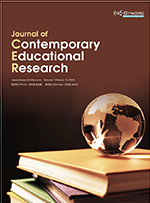Abstract
As China’s education develops, the innovation of curriculum teaching mode has been increasingly emphasized, and the theory of constructivism has become a popular topic in educational research. The purpose of this article is to elucidate the theoretical implications of constructivism by examining the psychological mechanisms involved in individual constructivist activities. From setting learning objectives, researching problems, learning to present ideas, reflecting and evaluating, etc., this paper expounds on the application of constructivism theory in curriculum teaching. Besides, strategies for implementing the constructivism theory in curriculum teaching are also proposed, so as to promote autonomous learning and the sustainable development of students.
References
Doychinova K, 2023, Teaching Methods Based on Constructivism in Environmental Education. Acta Scientifica Naturalis, 10(2): 97–108.
Filieri L, 2023, Transcendental Deduction and Cognitive Constructivism. Journal of Transcendental Philosophy, 4(3): 255–265.
Xu Y, 2022, Research on Practical Teaching Based on Constructivist Learning Theory: Take Business English Majors as an Example. Studies in Literature and Language, 25(2): 27–31.
Srivastava KN, Vivek M, 2021, Constructivist Theory of Learning. TechnoLearn: An International Journal of Educational Technology, 11(1): 19–21.
Chuang S, 2021, The Applications of Constructivist Learning Theory and Social Learning Theory on Adult Continuous Development. Performance Improvement, 60(3): 6–14.
